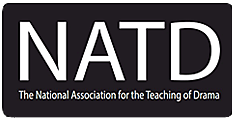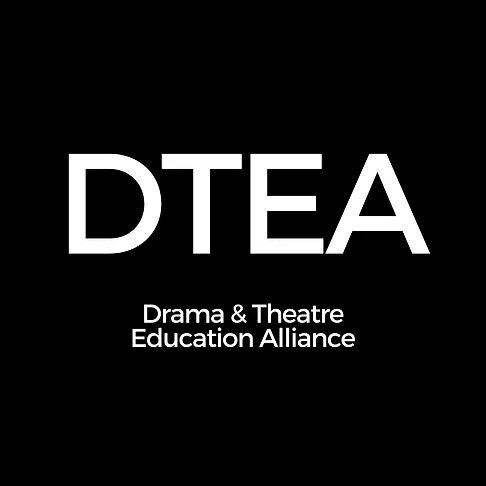Position Statement: Drama, Theatre and Education Alliance
The National Association for the Teaching of Drama are proud members of the Drama, Theatre and Education Alliance (DTEA). Find a position statement from the DTEA Chair, Dr Steve Ball, below.
Introduction
The Drama and Theatre Education Alliance (DTEA) is an influential voice for drama and theatre education. It provides support and advocacy for the continued provision of high-quality drama and theatre in schools, theatres, universities and communities; it lobbies and campaigns to improve drama and theatre education for children and young people, from pre-primary to higher education. It seeks increased access, funding, status and curriculum time.
The creative process of experiencing, exploring and making drama and theatre, helps us to express what we care about and why; reminding us of who we are and what we can be. Educational research indicates the significant benefits that participation in drama and theatre bring to children’s all-round development, wellbeing and cultural enrichment.
Background
In 2019, multiple organisations came together to re-launch the Drama, Theatre and Young People’s Manifesto and, in 2020, it was agreed to establish an alliance of the leading drama and theatre education associations in order to focus on the generic issues facing schools, universities and theatres.
The Alliance has an agreed purpose - that ‘high quality drama teaching and theatre experiences should be made a curriculum and cultural entitlement for every young person’ (Drama and Theatre Manifesto, 2019). The alliance promotes and celebrates the value of drama and theatre as a collaborative and social art form in which young people experience artistic excellence and world class theatre; a learning process in which they make decisions, address problems, plan, perform and critique their own work and that of others.
The key priorities of the Alliance are to:
Create a stronger, well-informed and coherent lobbying voice for drama and theatre education;
Present collective responses to government policies;
Share information and knowledge concerning developments in individual associations;
Agree and implement strategies that will raise the profile of learning through drama and theatre in schools and theatres;
Support a culture of continuous improvement to practice in drama and theatre education.
On July 15th the DTEA organised an international online conference entitled Getting Our Act Together. The delegates were asked for proposals concerning their priorities for action and reform, which DTEA have distilled into four key priorities:
Primary drama and KS3 review.
De-colonising the curriculum.
Actions for effective advocacy.
Theatre Provision for children and young people.
These four priorities are the basis of the DTEA Action Plan 2020-2021.
The year ahead
The crisis facing drama and theatre education is not new. It is evident that, since 2010, government policies have continued to erode drama and theatre provision for children and young people. The pandemic crisis and the resonance of the Black Lives Matter movement have shed a fresh light on the importance of drama and theatre’s contribution to learning, health and personal identity. The closure of theatres, online teaching and the restrictions on theatre education departments has resulted in a determined review of the risks to children and young people’s mental wellbeing when they have limited access to creative, participative, collaborative learning and arts experiences.
The Black Lives Matter movement has revealed the importance of genuine curriculum representation and relevance; set texts should be revised; professional drama training needs investment; the voices of children and young people need to be heard and drama and theatre should have the same curriculum status as other arts.
If the Drama and Theatre Education sector is to thrive, rather than merely survive, then we should seek to rebuild and reshape future provision in order that we become more inclusive, more diverse and more influential. Our broad Alliance is well positioned to initiate reform within our own organisations, with policy makers and with government.
Dr Steve Ball, Chair
Drama and Theatre Education Alliance (DTEA)

